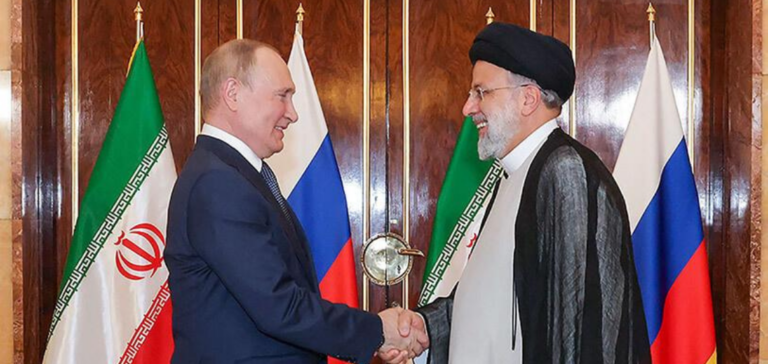Russia and Iran, under Western sanctions, strengthen their bilateral cooperation at the sixteenth joint economic commission. Both countries are committed to expanding their energy cooperation.
Bilateral Strengthening
Russia and Iran continue to strengthen their cooperation in accordance with the promises made by Vladimir Putin in Tehran. Thus, Iranian Oil Minister Javad Owji states:
“Thanks to the determination of the two countries’ senior officials and the negotiations in recent years, bilateral relations aimed at securing common interests and helping to ensure regional and international stability, peace and security are trending upwards. I’m sure it will continue and deepen.”
Indeed, as the Russian economy falters under Western sanctions, Tehran appears to be a relevant ally.
In the same way, Iran sees in Moscow an ally capable of neutralizing American sanctions. For Iran and Russia, this is a historic opportunity for cooperation. Both partners hope that this bilateral memorandum will also serve the development of other countries in the region.
Gas and oil are a priority in the relationship between the two countries. Last July, Tehran took advantage of the instability on the international scene to increase its oil production. Iran, despite large reserves of gas and oil, believes that Russia offers it the opportunity to develop its industry.
A global agreement
Iranian Oil Minister Javad Owji says:
“The Russian side’s investment in various sectors of Iran’s oil industry, including petrochemical value chain development, oil refining and field development.”
Iran relies on Russia to modernize its infrastructure and Russia is looking for new buyers. Thus, Tehran and Moscow signed four documents of cooperation at the end of the commission.
In addition to the agreement on health and the electrification of a railway project, a major contract brings together two Russian and Iranian energy giants. Sina Energy Gostar Holding and the state-owned company Promsyrieimport signed a memorandum of understanding. The objective of this protocol is to implement EPC projects for product transfer pipelines.
The main areas of the agreement relate to investments by the Russian side in the Iranian oil sector. They also include the exchange of energy carriers such as gas and crude oil. Finally, the agreement provides for the development of deposits and refining capacities.






















